
Don Quixote
by Miguel de Cervantes Saavedra
Published: 1615
(982 pages)
moreDon Quixote has become so entranced by reading chivalric romances, that he determines to become a knight-errant himself. In the company of his faithful squire, Sancho Panza, his exploits blossom in all sorts of wonderful ways. While Quixote's fancy often leads him astray – he tilts at windmills, ima...
Don Quixote has the humor of Nacho Libre and a weird blend of fantasy and reality that I can only compare to Galaxy Quest. I. Loved. This. Book. I was surprised how funny it was. Like laugh-out-loud funny with crude potty humor (my favorite) and violence that the Three Stooges would love. For example, Don Quixote does something absolutely crazy until I can’t stand him but then he gets the crap beaten out of him so I felt sorry for him and kind of liked him again until, of course, he does something crazy again. It actually takes a while to get tired of that cycle because it manages to be funny every time. By the time I was tired of it, Don Quixote started to change and develop more. The story is tragic, too, so it has some depth (but even the tragedy manages to be kind of funny).
If you read this novel in high school and feel like you didn’t read the same book as me, YOU DIDN’T. You need to read the Edith Grossman translation. It’s amazing. It flows well. It’s modern enough to understand yet she worked hard to keep as much of the context of the time period and language as possible. The style feels similar to reading Jane Austen. It’s not totally modern but not old enough that it’s hard to understand. Edith’s footnotes in this novel were great. They gave context when needed. They pointed out plot holes that I didn’t even notice like someone in the room talking even though the author never mentioned them coming in. She also did her best to explain the word play humor that sadly didn’t translate to English. If you’re still not convinced to read it because it’s long, I can tell you that the reason it’s so long is because there are chivalric novellas inserted into the narrative. They’re good stories but if you are intimidated by how long it is, you could skip these novellas.
If Don Quixote was going to be written today, it would be about video games rotting someone’s brains and they tried to bring the rules of video games into real life.
This is how the book describes Don Quixote:
In short, our gentleman became so caught up in reading that he spent his nights reading from dusk till dawn and his days reading from sunrise to sunset, and so with too little sleep and too much reading his brains dried up, causing him to lose his mind.
-Cervantes, (translated by Edith Grossman). Don Quixote (p. 21).
So Don Quixote decides to become a chivalric knight after he loses his mind. His family is shocked by this and asks a priest for help. This priest goes through Don Quixote’s books to “help” him by getting rid of the evil ones. At first, I thought they were just going to burn them all. But as the conversation goes on, the priest starts to justify keeping some of the books he likes in long speeches. I almost died laughing at the hypocrisy of it.
There are several characters who are trying to “help” Don Quixote but they do it by pretending to believe everything Don Quixote says and does. Doesn’t that make them just as crazy as Don Quixote? Since the characters are pretending to go along with Don Quixote, it makes it so his imagination is literally influencing the plot. I’m also pretty sure he would have been “cured” sooner if they had left him alone and let reality teach him. The characters who are helping him are a judge, a priest and a barber which sounds like the perfect setup for a joke. “A judge, a priest and a barber walk into an inn…”
By part II, I started to wonder if maybe Don Quixote has a point. That maybe the world needs knights/heroes who go around the world doing good. Maybe we are the ones that are crazy to think that the world is fine the way it is and we don’t need to try and make it better even if we are aiming for an ideal that we can’t reach. At the very least, I started to admire his determination to do what makes him happy no matter what anyone else says.
The plot consists of random, unrelated events which usually bugs the crap out of me. But what kept me reading was the desire to know if this new, random event would finally be the thing that knocks some sense into Don Quixote.
I love the characters in this book. Sancho Panza is awesome. He was by far my favorite character. I imagined him kind of like this:
He reminds me of Nacho from Nacho Libre. He’s the source of most of the humor. I could hardly breath when Sancho has “done something with my person I shouldn’t have (p. 148).” I won’t spoil it but basically it’s totally immature bathroom humor. It’s written in such lovely language to contrast the crude humor that it’s literally the funniest thing I’ve ever read.
Don Quixote and Sancho don’t always get along and it was immensely entertaining to read. Don Quixote gets mad at Sancho’s logic quite frequently. Sancho tries to sound wise by saying every proverb he’s ever heard whether it applies to the situation or not. He also likes to switch his words around like in this next quote (and it makes Don Quixote really mad lol):
“Censuring is what you should say,” said Don Quixote, “and not sentencing, you corrupter of good language, may God confound you!”
– Cervantes (translated by Edith Grossman). Don Quixote (p. 579).
Sancho is also a little bit of a Captain Obvious and states obvious things which annoys Don Quixote and made me laugh. Still, the great thing about Sancho is that despite his nonsense, his simple-mindedness often appears wiser than Don Quixote which make them a great, contrasting pair.
My favorite thing about the movie Galaxy Quest is that the characters have to live through the ridiculous science-fiction that you see in shows like Star Trek in real life.
Don Quixote is like that, too. He tries to imitate the highly stylized and totally unrealistic life of a knight in real life.
There are poems at the beginning that are easy to skip, but don’t. Or at least listen to them on audiobook. They are written in a style where some of the syllables are missing and it’s hilarious. Having it read out loud sounds like someone getting punched in the gut halfway through each line. The poems are also the first example of this weird mix of fantasy and reality. The poems are stories of the real characters in Don Quixote talking to famous characters from other chivalry novels.
In Part II, the characters in the book have read Part I and the fact that they’ve read Part I influences what they do in Part II. The characters react to the real life reception of the novel when they meet characters who have read it. And the characters they meet are both fans and critics. It’s so bizarre and fun and it works.
Cervantes claims to be re-writing a translation of someone else’s story about Don Quixote so the author becomes a character in his own book. The priest, when he is going through Don Quixote’s books, finds one written by Cervantes and says it’s a good book. THIS IS SO WEIRD I LOVE IT. Also in Part I, Cervantes wrote a few plot holes that are addressed in Part II. Cervantes doesn’t just clarify them. He has the characters themselves explain the plot holes and be mad that the author didn’t keep an accurate history.
Cervantes made a lot of references to real chilvaric novels throughout the book. I could tell that Cervantes really knew what he was making fun of. But by the end of the book, I still couldn’t tell if that meant he loved chilary novels or hated them. I think that’s a sign of brilliant satire.
Don Quixote refuses to eat because he’s trying to emulate knights from the books he’s read and it never mentions them eating. This is so funny I can’t even….
I learned so much from reading this book. Like did you know that Don Quixote is considered the first modern novel? And it inspired Dickens, Flaubert, Joyce and Prouse? Part I has chapter breaks according to the events in the novel but Part II develops into the traditional novel where the chapter breaks are based on the emotions of the characters. We get to hear more often what the characters think (I got that from Sparknotes just FYI).
Just to add to the nerdiness of this review, here are a few other interesting tidbits that I learned from Sparknotes about Don Quixote (aka stuff you could rip off for a book report):
- There’s actually quite a bit of Spanish history in the novel.
- This novel challenged the idea of class and worth making it revolutionary for it’s time.
- There are books everywhere in the novel and they show the power that books and ideas can have in our lives – for good or bad and regardless if they are fiction or not.
- Don Quixote as a character is likable yet hate-able at the same time. He has good intentions but he still hurts others.
- Cervantes disagrees with the fake translator on whether Don Quixotes’ actions were good or not leaving it up to the reader to decide.
- The writing style sounds like a transcription of an oral history sometimes. One of the themes in Don Quixote is story-telling and Cervantes likes to mess around with all kinds of story formats – poems, epic, novels, oral stories etc.
Now let’s talk about feminism which does actually exist in this book. A bit. Don Quixote meets a girl who is so beautiful that a man claims that he “has” to fall in love with her and she has to return his love or he will die. Yeah she calls BS on that one on goes on her happy, independent way. Sadly, the rest of the female characters are flat and valued only by their looks but it’s hard to tell if this was part of the satire or not… I mean every other female character in the book is sooooooo beautiful. Too many drop-dead gorgeous ladies without personalities to keep track of. Blech.
The audiobook was fantastic. I switched back and forth between the audiobook and ebook. The voices that the narrator did were so good that they got stuck in my head even when I was reading the ebook.
In the prologue, Cervantes describes what the perfect novel should do:
…move the melancholy to laughter, increase the joy of the cheerful, not irritate the simple, fill the clever with admiration for its invention, not give the serious reason to scorn it, and allow the prudent to praise it.
-Cervantes, (translated by Edith Grossman). Don Quixote (p. 8).
In other words, the best books should:
..achieve the greatest goal of any writing, which, as I have said, is to teach and delight at the same time.
-Cervantes, (translated by Edith Grossman). Don Quixote (p. 414).
It’s the perfect description of the perfect novel and I think Don Quixote lives up to that.
PS. The Ending View Spoiler »
Book Review of Don Quixote on a Post-it
For more reviews like this, be sure to follow me on Instagram!
Reading this book contributed to these challenges:







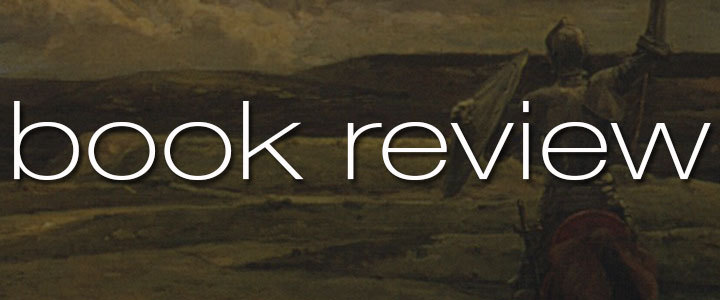

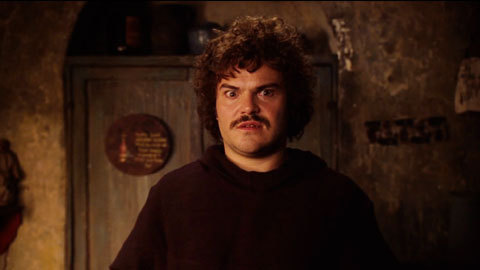

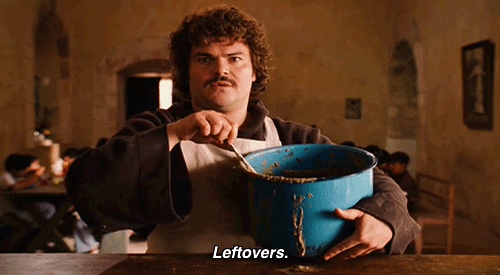
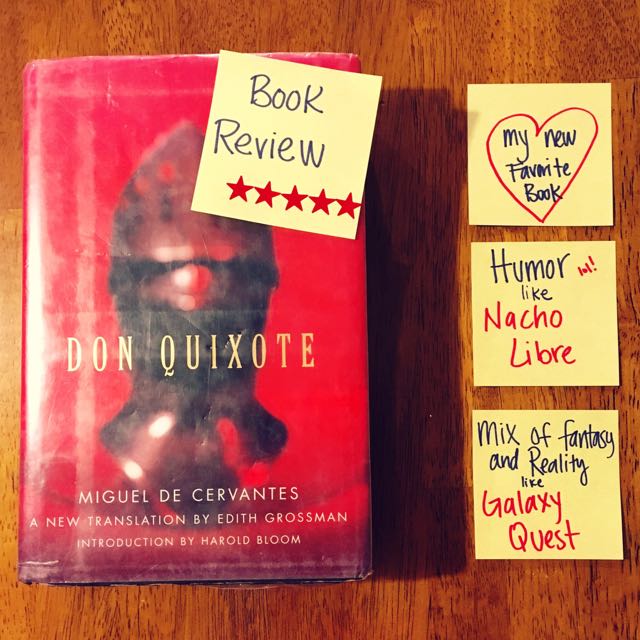
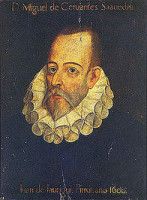
 My name is Jessica. I love to read Young Adult and classic literature. I’ve been a book blogger for six years and I haven’t gotten tired of it yet. I’m a very curious reader. Writing about all the questions and thoughts I had while reading a book is the best hobby ever.
My name is Jessica. I love to read Young Adult and classic literature. I’ve been a book blogger for six years and I haven’t gotten tired of it yet. I’m a very curious reader. Writing about all the questions and thoughts I had while reading a book is the best hobby ever.
Wow! I’ve never heard of anyone raving about this book as much as this. I’ve always wanted to read Don Quixote, but it is one of those books that really intimidate me.